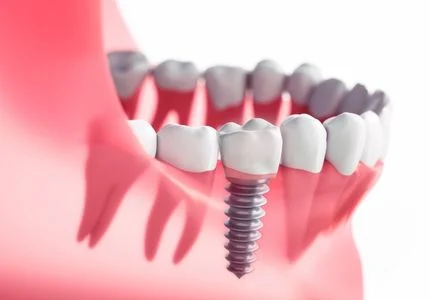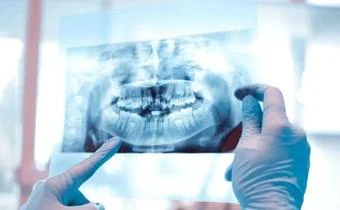Contact now to benefit from special opportunities for you.

With the advancements in dental treatments, you can now bid farewell to concerns about missing teeth. Dental implants, which function as artificial tooth roots, are securely placed in your jaw. Are you interested in discovering how this process unfolds, leading to the arrival of your resilient new teeth? Then, please continue reading!
When embarking on the journey of implant treatment, it is essential to recognize that this process requires time for completion in order to achieve a rejuvenated oral state. The implant treatment involves several stages, with the initial step being the healing of your gums after the implants have been placed in your mouth. By meticulously adhering to your doctor’s instructions throughout these processes, attaining a set of brand new and robust teeth becomes quite straightforward.
Implants serve as replacements for tooth roots and can be either fixed or removable, depending on your specific needs. Your doctor will collaboratively develop a treatment plan with you, taking into account your discussions and considering your jaw structure and overall health. Subsequently, your implant treatment will commence in accordance with these factors, ensuring a tailored approach to meet your individual requirements.
There are many reasons to have dental implants in Turkey. The most common of these are as follows:

Three reasons to come on this journey with us
Our dentistry procedures offer long-lasting and permanent results, allowing you to enjoy natural-looking teeths for years to come.
With our advanced techniques and skilled surgeons, we prioritize your comfort throughout the dental treatments, ensuring a virtually painless experience.
We prioritize patient satisfaction and strive to exceed your expectations. Our dedicated team ensures that you receive personalized care and support throughout your dental treatment journey.
At your first appointment at Kardelen Clinic, a detailed X-ray of your teeth will be taken first. Subsequently, our expert surgeon will carefully assess the condition of your teeth, jaw, and bones. They will address any concerns or inquiries you may have and develop a comprehensive plan detailing the progression of your treatment and the necessary steps to be taken.

Implant surgery is carried out with the administration of general or local anesthesia, or sedation, depending on your specific circumstances. Your surgeon will carefully assess your situation and make the appropriate decision regarding the anesthesia method.
It is important to note that the implant process can span several months to ensure optimal results. This extended duration is primarily attributed to the necessary healing time for the chin after implant placement, as well as the growth of new bone in the jaw.
However, it is crucial to acknowledge that these timelines may vary based on individual health and jaw conditions. The provided information serves as a general overview of the treatment process.

After the surgery, it is common to experience bruising, swelling, mild bleeding, and discomfort around the area where the implants were placed. Your doctor will provide you with a prescription for medications that can be purchased from pharmacies to help manage these symptoms based on your specific condition.
Once your treatment is complete, your doctor will provide you with detailed instructions for the care of your implants. Generally, caring for your new teeth is similar to regular dental care.
It is important to brush and floss your teeth diligently twice a day. Additionally, do not overlook the significance of regular dental check-ups to maintain the health of your implants and overall oral hygiene.

The operation may vary from person to person but usually
| PROCEDURE DURATION | Depends on the Operation |
| ANESTHESIA | Local, General, of IV Anesthesia |
| RECOVERY TIME | 4-6 Months |
| ACCOMODATION | 5-7 Days |
| PREFERRED METHOD | Depends on the Patient |

Ask a question to us. Our medical consultant will reach you as soon as possible for more information.
Some of the questions our patients often ask us
On average, a dental implant can last between 10 to 30 years, which implies that, in most cases, it is expected to endure for the remainder of your life, considering your age at the time of the implant. It is worth noting that no other tooth replacement alternative offers such an extensive lifespan.
Dental implants are medical devices that are surgically placed in the jaw to restore both the functional ability to chew and the aesthetic appearance. They serve as a sturdy foundation for artificial teeth, including crowns, bridges, or dentures.
During your dental implant procedure, the use of numbed nerves ensures that you won’t experience any pain. While you may occasionally feel pressure, it should not result in discomfort. For individuals who feel anxious about dental procedures, oral sedation is an option to help alleviate their concerns.
Among the available choices for replacing missing teeth, implants are undoubtedly the most effective in preserving the jaw’s bone tissue. However, it is important to note that they are not as ideal as natural teeth. Natural teeth possess a suspension system known as the periodontal ligament, which aids in absorbing and distributing the force exerted while chewing.
Following dental implant surgery, it is advisable to consume soft foods that do not require extensive chewing. For the initial day after the treatment, it is recommended to opt for very soft or liquid foods. This precautionary measure helps prevent any accidental biting of the mouth or tongue, as the numbing agents administered during the surgery may temporarily affect sensation.
Yes, for the majority of individuals dealing with a missing tooth, dental implants are certainly worth the dedication of time and financial resources. The advantages of dental implants are numerous and have a positive influence on various aspects of your life.
When considering dental implants, it is important to be aware of the potential risks and complications involved. These may include the risk of infection, potential damage to adjacent teeth, delayed healing of the bone, nerve damage, extended bleeding, and even the possibility of jaw fractures. It is crucial to discuss these potential risks with your dentist or oral surgeon before proceeding with the implant procedure.
Cosmetic dentistry clinics in Turkey, known for providing high-quality, safe, and reputable services, may offer reduced costs compared to other regions. This reduction in cost can be attributed to lower overall operation expenses, including laboratory fees and dental fees.


The content used on the site belongs to Kardelen Medical Center. It cannot be used without permission.